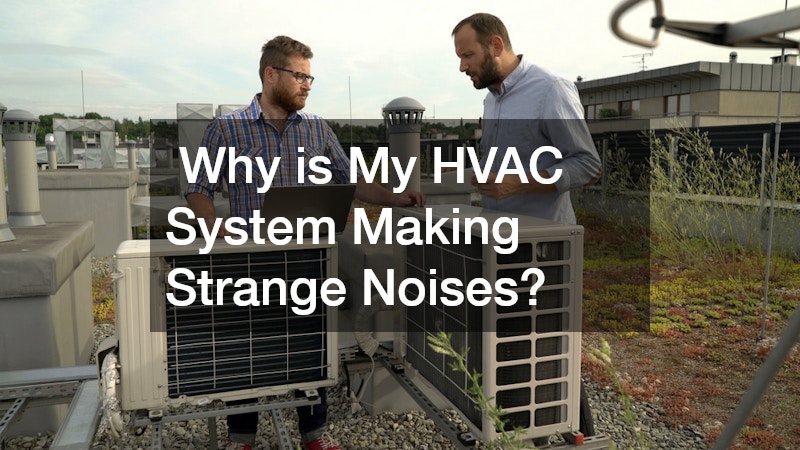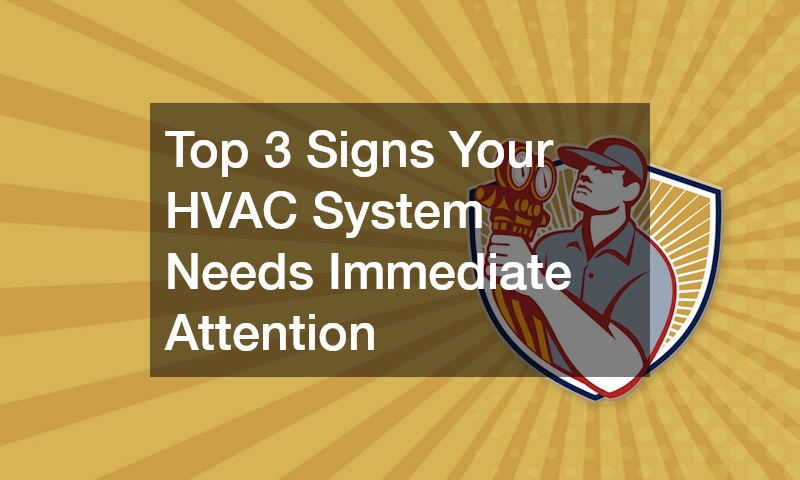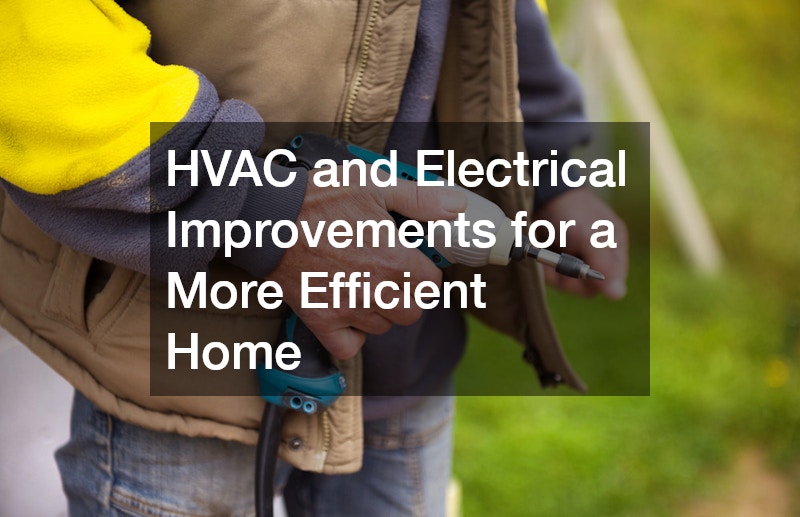Understanding when your HVAC system needs professional intervention can save you time, money, and discomfort. This article highlights the top three signs indicating that your HVAC system requires immediate attention, ensuring your comfort and safety at home. Regular maintenance and keen observation of these signs can prolong the lifespan of your HVAC system.
1. Why is My HVAC System Making Strange Noises?
HVAC systems are intricate devices that might produce a variety of noises, each indicative of different issues. Common sounds include banging, clanking, or squealing, which can signal loose or broken components.
Strange noises often originate from worn-out belts, bearing issues, or unbalanced blower wheels that require immediate investigation.
The presence of rattling might suggest that debris has entered the system, harshly impacting its performance. Sometimes, a buzzing noise can indicate electrical issues, such as faulty wiring or a failing capacitor. Recognizing these noises early can prevent significant malfunctions and ensure that they are addressed promptly.
Homeowners need to monitor these sounds, and when unusual noises arise, professional assistance should be sought. Keeping a detailed record of these occurrences can assist service technicians in pinpointing issues accurately. Regular inspection and quick response to auditory signals can mitigate more serious complications in the future.
Ignoring the strange noises from your HVAC system can lead to severe damage over time. When issues are left unresolved, what might have been a minor repair can transform into costly replacements. Additionally, persistent abnormal sounds can indicate a failing part that could compromise the entire system if not addressed. That is why it is recommended to get frequent HVAC services done every year.
2. What Does Reduced Airflow Indicate for My HVAC System?
Reduced airflow in your HVAC system can stem from various causes that need immediate resolution to maintain system performance. Clogged filters are the most frequent culprits, as dirt and debris accumulate over time, restraining air movement. Similarly, obstructions in ductwork, whether from dust buildup or physical blockage, also contribute to diminished airflow.
A malfunctioning blower fan can exacerbate this issue, failing to circulate air properly throughout your home. In some instances, improperly sized ductwork can choke airflow, rendering the system less effective. Addressing these airflow impediments is necessary for preserving indoor comfort and system efficiency.
Regular checks and prompt action are key in overcoming these common airflow challenges. Replacing or cleaning filters can ensure air circulates freely, reducing strain on the system. By consulting HVAC professionals, homeowners can detect and resolve these issues promptly, fostering better performance and reduced energy consumption.
Restricted airflow can dramatically affect the efficiency and longevity of your HVAC system. When airflow is compromised, the system must work harder to reach desired temperatures, leading to increased wear and tear. This overexertion can cause components to fail prematurely, necessitating costly repairs or replacements.
Moreover, insufficient airflow impacts the effectiveness of heating and cooling, resulting in uneven temperatures and discomfort in your living spaces. A system struggling with airflow issues may also utilize more energy, driving up your utility costs unnecessarily. Monitoring and rectifying airflow is essential in maintaining a cost-effective and efficient HVAC system.
3. How Does a Sudden Increase in Energy Bills Signal HVAC Issues?
A sudden spike in energy bills often signals underlying issues with your HVAC system. When the system becomes inefficient, it consumes more power to maintain temperature, elevating energy costs. Various factors like clogged filters, poorly insulated ducts, or faulty thermostats can cause your HVAC system to draw more energy.
Aging equipment can also lead to inefficiencies, where parts wear out and lose their effectiveness over time. Monitoring energy usage can reveal patterns where significant increases might correspond to specific system components failing. Identifying the causes behind these expenses can help pinpoint which part of the HVAC system requires immediate attention.
Addressing these issues not only curbs unexpected financial outlays but also ensures a more environmentally friendly system through improved energy efficiency. Early detection through careful utility bill monitoring can prevent full system breakdowns. By understanding the relationship between your HVAC system’s performance and energy usage, effective strategies can be implemented for improvement.
Recognizing and addressing the early signs that your HVAC system needs attention can prevent more costly repairs and ensure a comfortable living environment. Conduct regular inspections and consult professionals when you encounter any of these issues for optimal system performance. Staying proactive about your HVAC system’s maintenance will enhance its efficiency, reliability, and lifespan.




